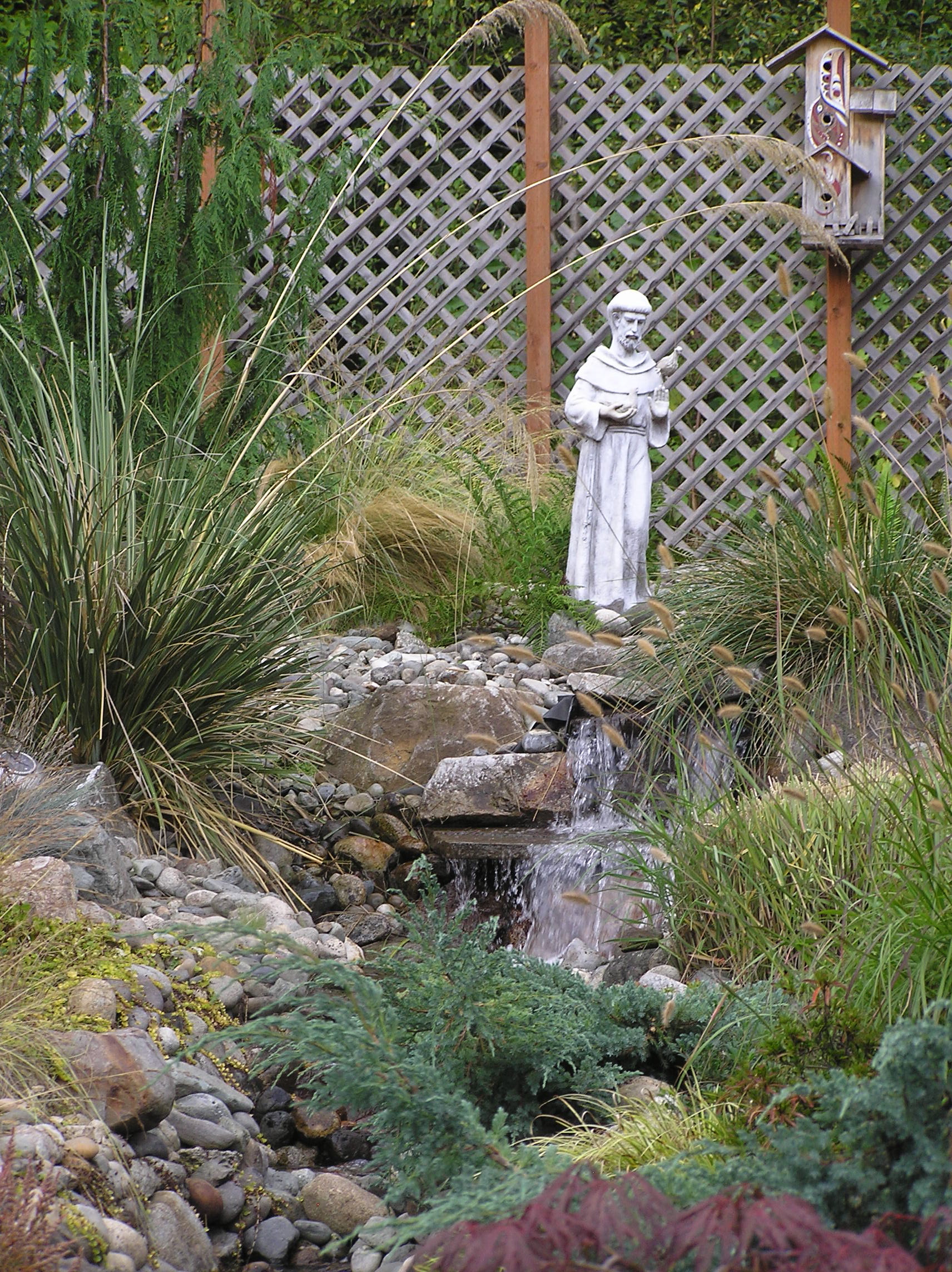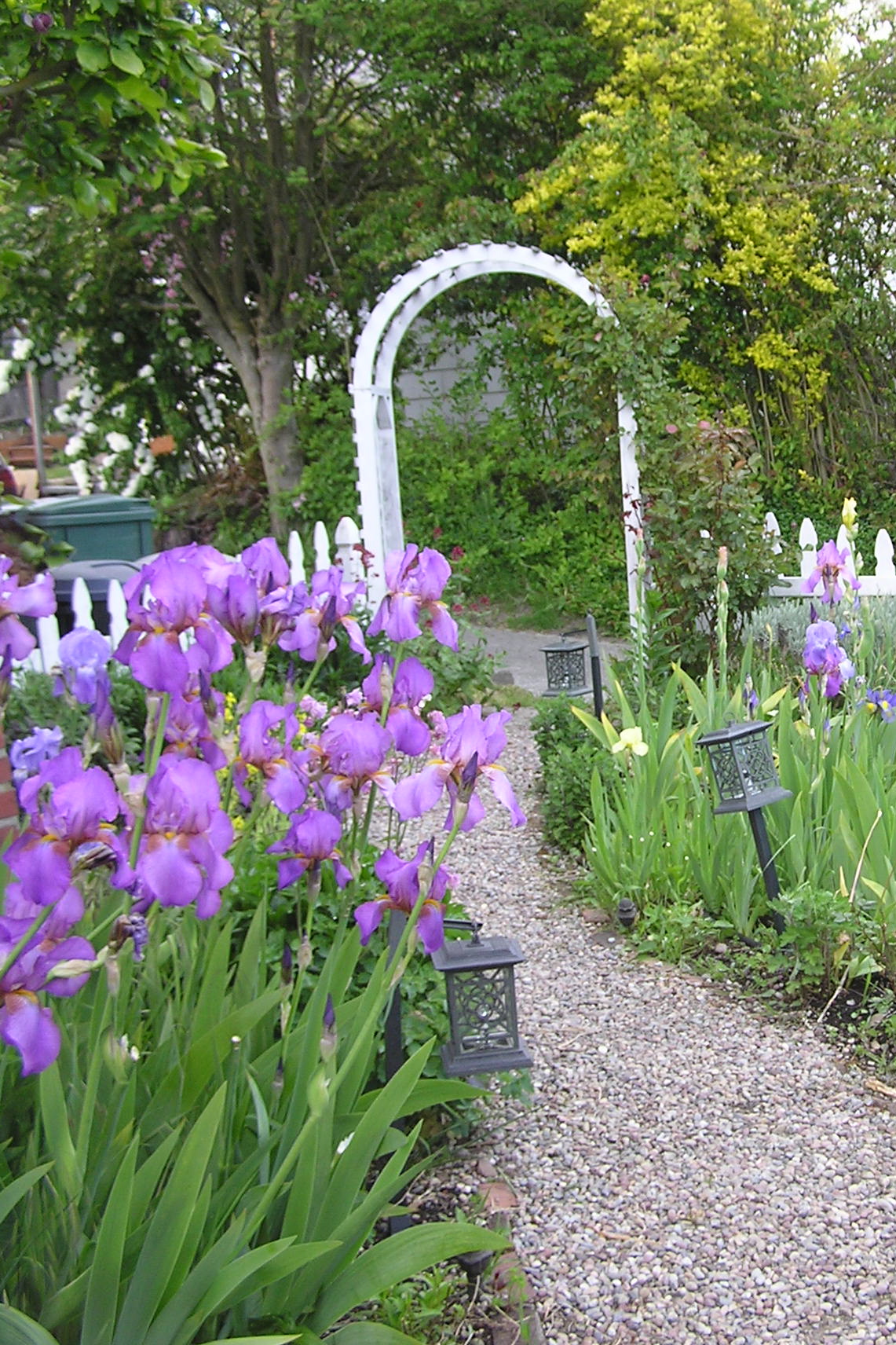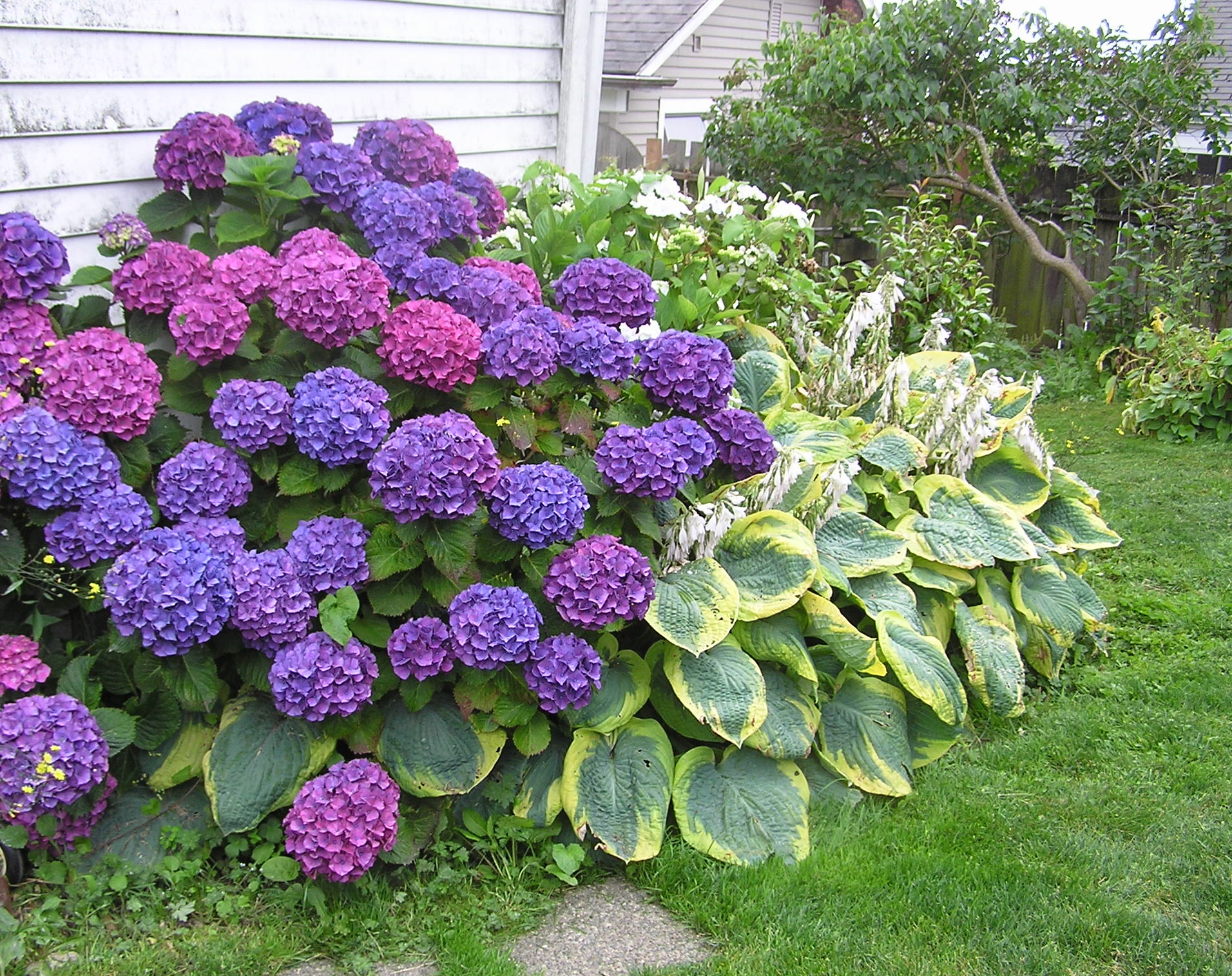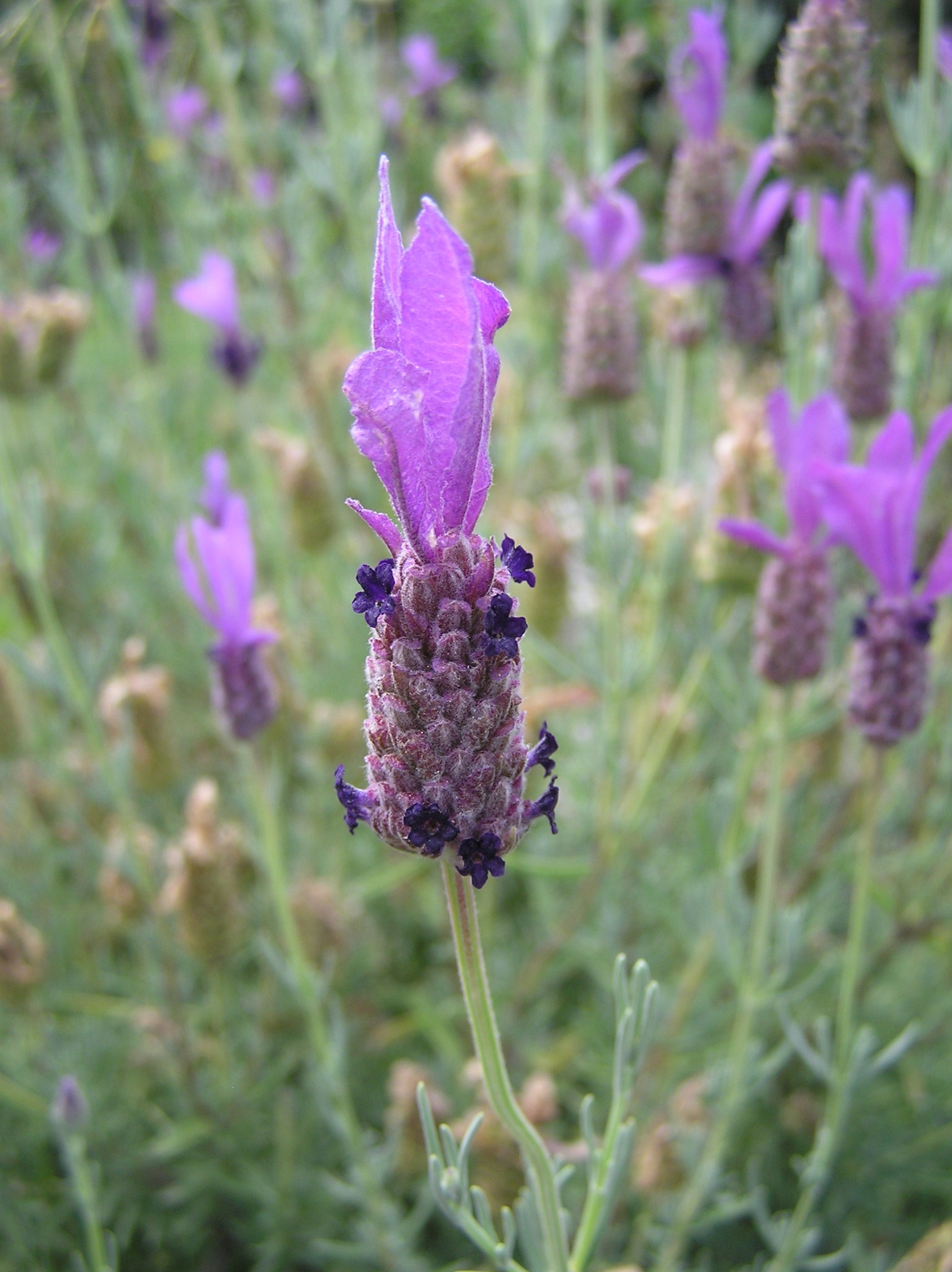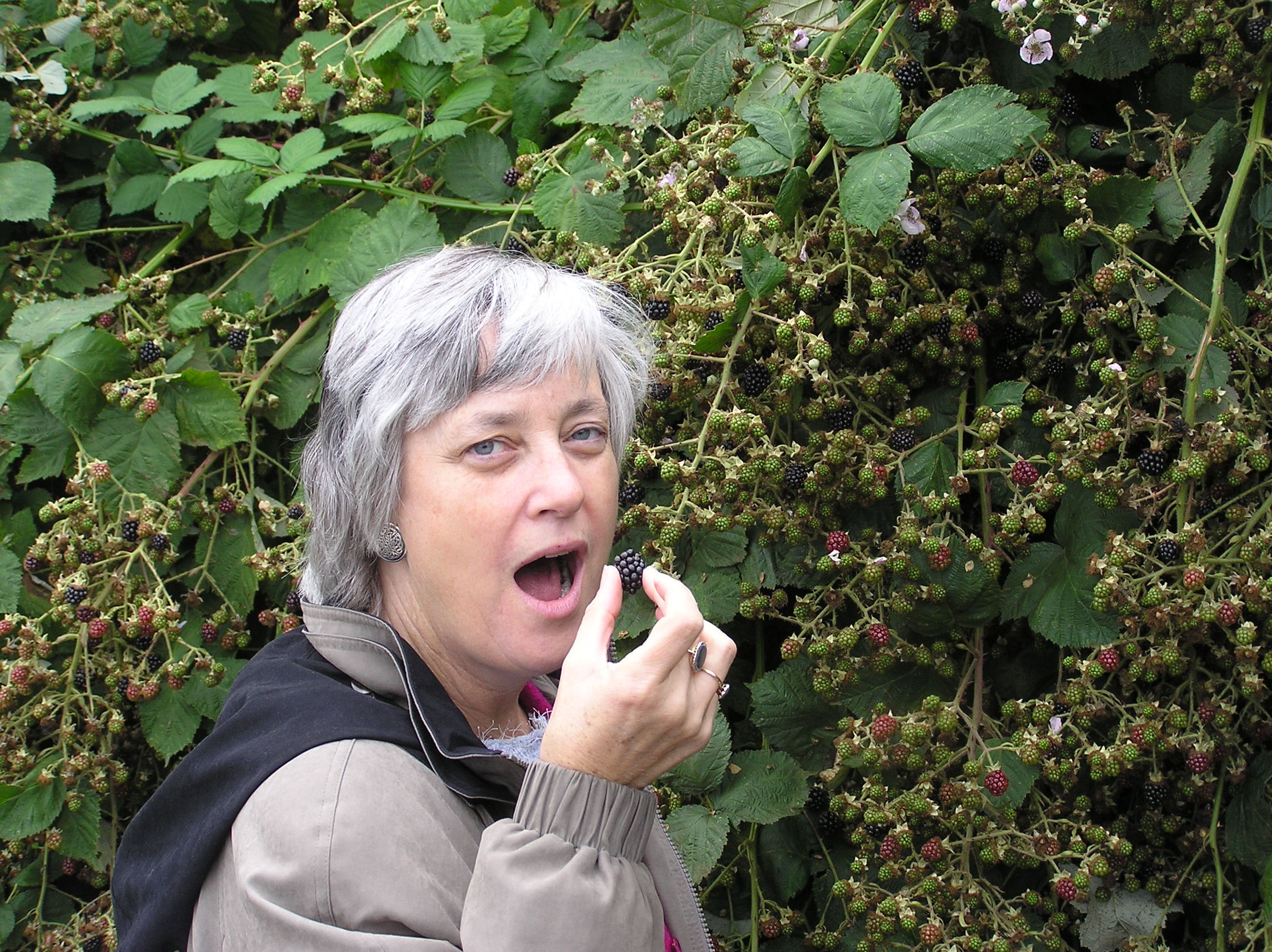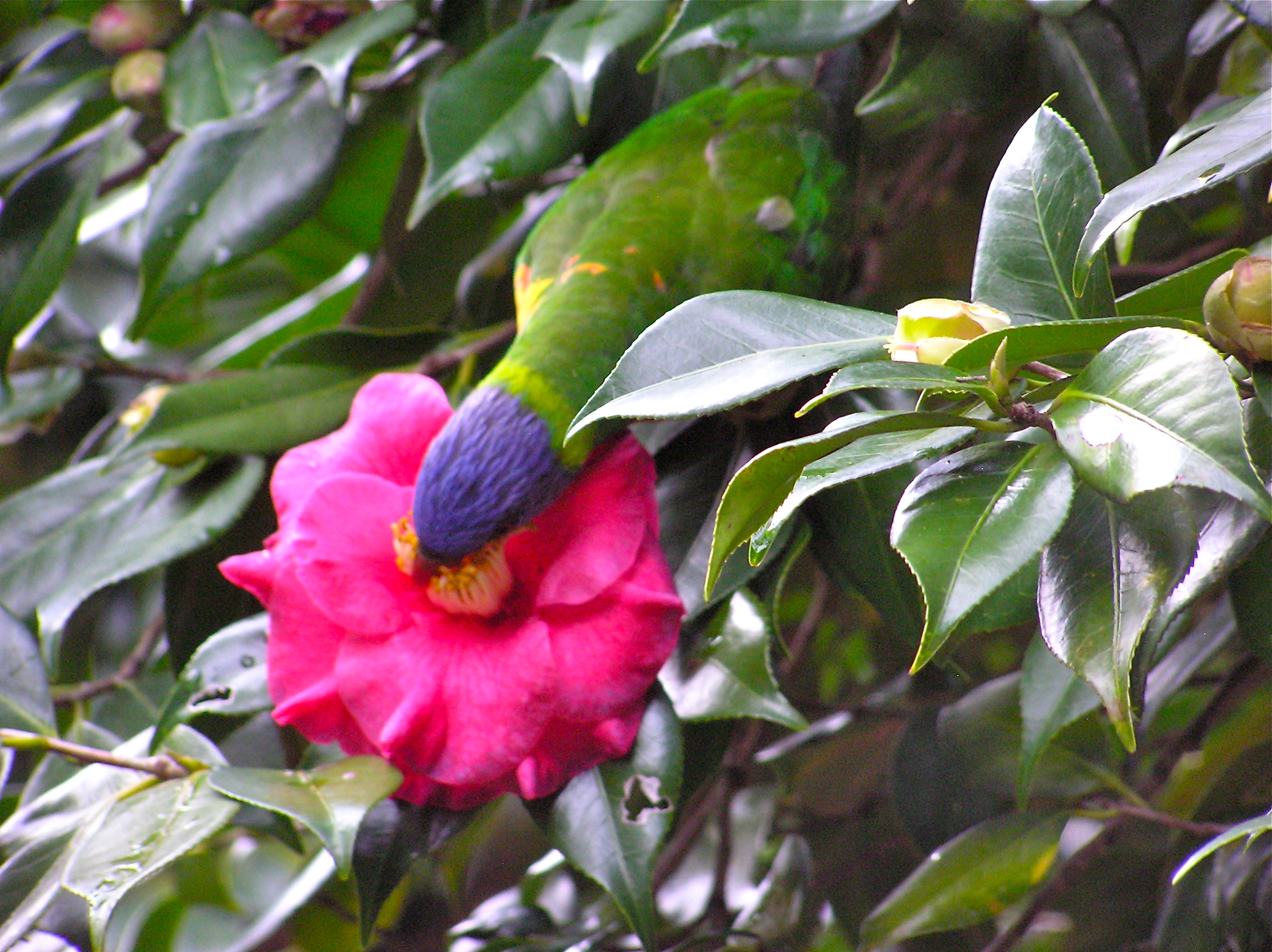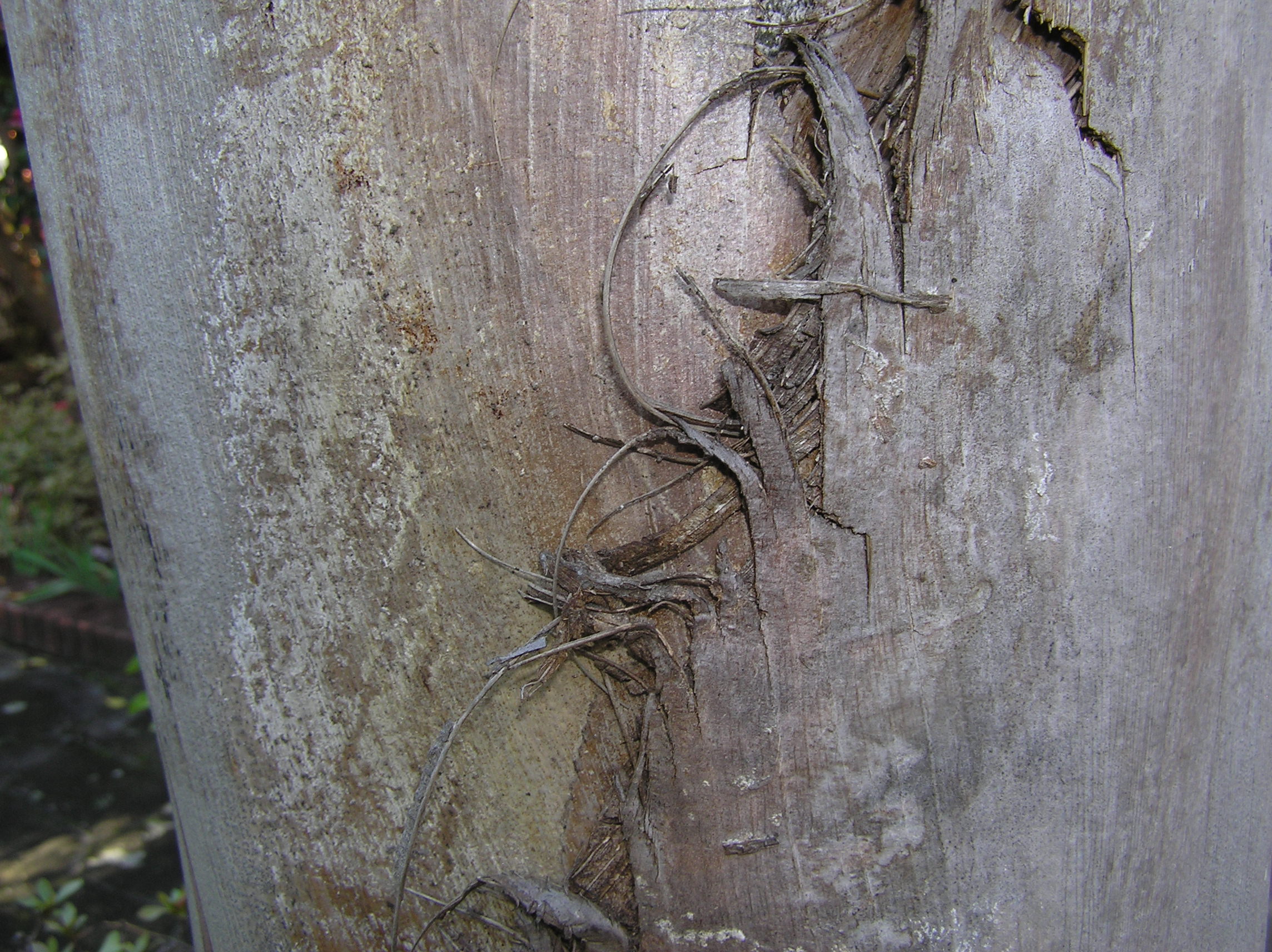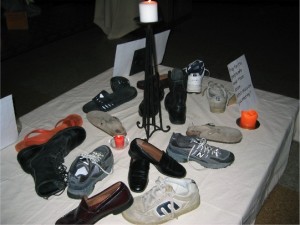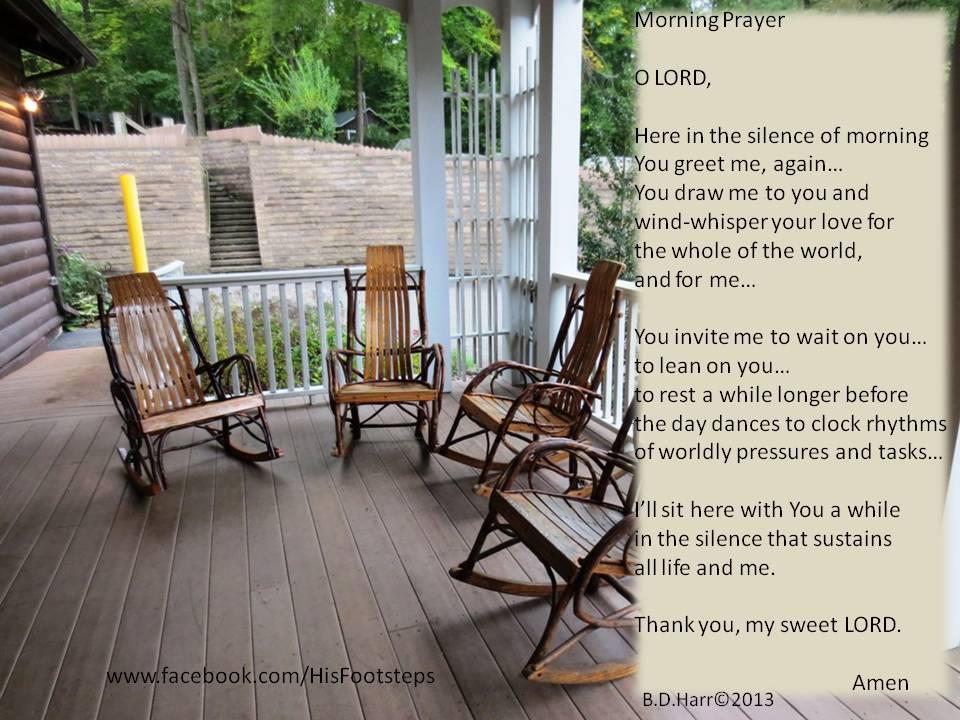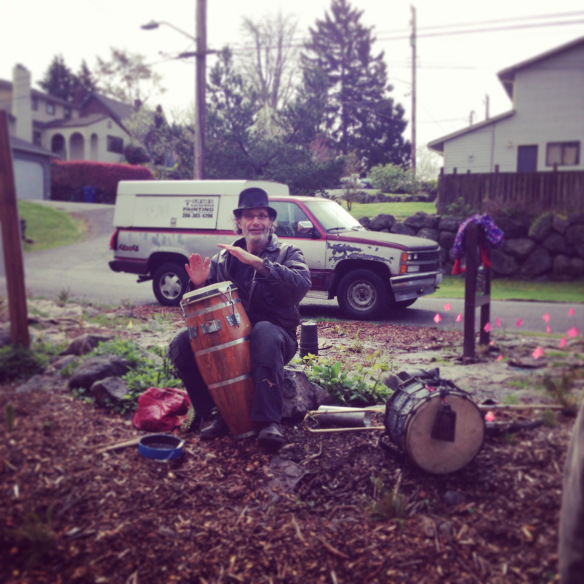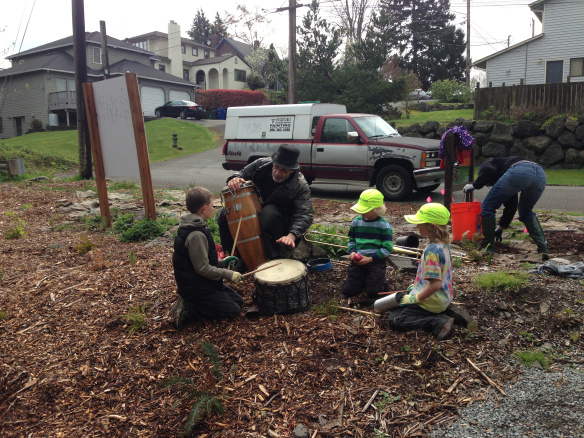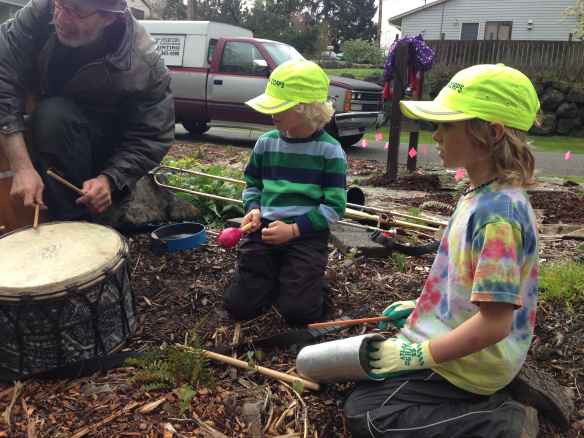Our understanding of sacred space has been trivialized and stereotyped by its confinement to churches and to the use of proscribed symbols that we believe are Christian. Once again my love for Celtic Christianity has guided me. The Celts found themselves intertwined with their surroundings. The land was not simply raw material for exploitation but an intelligent, living presence. The fabric of the land was home not only to man and animal, but also to the spirits of the forest and the crops, the underground dwellings of the ancestors, and the gods themselves.
The early Celtic Christians did not do away with the symbols of the culture, they transformed them into symbols of their faith. The high places of the druids were planted with the high crosses of Christianity which became important teaching stations. The stories of Celtic gods were transformed and interwoven with stories of Celtic saints. And all of creation was translucent, unveiling the presence of the eternal God revealed in Jesus Christ.
We too can use symbols and sacred elements that speak to our faith today. If we seek renewal, contemplation and healing as well as beauty in the garden then we can very deliberately incorporate symbols, shapes, and patterns that enhance this. If we see our interaction with the garden as an invitation to participate in the divine act of creativity and imagination this becomes an even more meaningful relationship that renews and nurtures our souls as we grow and change. If we see our gardens as translucent beauty through which God glory shines then we very deliberately incorporate elements that speak to us of God.
So what are the threads you want to weave into your garden to enhance its revelation of God? Here are a few suggestions:
Crosses and statues: these are the expected “Christian” symbols in our gardens and they can play an important role as focusing points for us. St Francis is the commonest statue encountered in sacred gardens but statues of Jesus or Madonna also appeal to many. Others prefer bird baths and feeder, sundials, fountains or totem poles that remind them of the wonder of God and the temporal nature of human existence.
Paths, patterns, mosaics and mazes. Meandering paths and stepping stones invite us to explore. Spirals, labyrinths, and mazes entice us into contemplative walks. Mosaics and other patterns created from pebbles, tile wood and stone, add beauty, texture and meaning.
Patios, benches, and gathering places. These can invite us to sit alone and mediate or can provide places for groups to gather. Shared fellowship and food in a garden adds another dimension of sacredness as we partake of God’s banquet feast together.
Arches, gates and arbors. A canopy of grape vines provides a translucent roof of living light within which we can sit and savour this fruit of God. Arches like rainbows remind of us of the interplay between heaven and earth and gates beckon us to private places where we can move deeper into intimacy with God.

Leo Tolstoy via wikimedia
A young boy once lived in a house in a forest. He and his brothers played in the woods, ponds and fields that surrounded their home. One day an older brother told the child about a green stick that was buried near a ravine in the deepest part of the forest. If you find the stick, the brother said, you will enjoy great happiness, and by the power of love bring happiness to all mankind. At once the boy began hunting for the fabled stick. His search continued throughout the rest of his life.
The boy in this story is Leo Tolstoy, the home, Yasnaya Polyana and the green stick represented the inspiration he received in nature. In Tolstoy’s literature, landscapes and ornamental gardens signify the emotional state of the characters he created. Yasnaya Polyana was his realm of inspiration. He described it as his cathedral, his sanctuary, his muse. Today its more than 1,000 acres are still cloaked with inspiring forests of oak, ash, maple and birch. It has become a place of pilgrimage for all who love Tolstoy.
Tolstoy’s favourite resting spot – a birch log bench in a small clearing – has its back to a large open field of bright yellow mustard weed and faces directly into a thick grove of fir trees. Here Tolstoy would sit and meditate. From here he watched the subtle changes of nature like the thawing of the earth and the sounds of grass growing, two images that appear in Anna Karenina.
Tolstoy’s garden of inspiration features a forest landscape, but a garden of inspiration can be composed of any elements that inspire us because of their special meanings. They are private sanctuaries created from a storehouse of happy associations where childhood memories, creative imagination and natural beauty are brought together in a way that can often feel like paradise on earth.
And to finish off a short video on Yasnaya Polyana. It is fairly amateurish but still worth a watch.
Several years ago Tom and I had the privilege of visiting St Catherine’s monastery in the Sinai desert. This is one of the oldest working monasteries in existence, and monastic life in the area dates back to the 4th century.
I still remember visiting the Greek orthodox church with its amazing collection of icons, chalices, manuscripts and works of art. Heavy incense filled the room. It was a feast for all my senses and a powerful reminder that for many early Christians places of worship were designed to usher us into the kingdom of heaven.
Sacred spaces should stir all our senses, and there is no better place to imagine how this could be accomplished than in the garden. The Irish poet and mystic John O’Donohue said that our senses are the gateway to the soul. And its true. A beautiful flower not only delights our eyes but also touches something inside our hearts. The fragrance of a rose transports us to a place of divine encounter. Even weeding becomes a contemplative act that invites us to touch, smell and enjoy.
Sight: Gardens are a place to experience the richness of the glory of God. Savouring every nuance of light, colour, texture and sound touches and transforms our souls, not only revealing the visible world but sometimes the invisible as well. Gardens shimmer with the presence of God and in their midst we often feel that the veil between earth and heaven is nonexistent.
Smell: A pleasant fragrance in the air awakens our sense of smell. It also often stirs our memories which isn’t surprising as scent is our strongest connection to memory. So as you plan your sacred space consider the fragrances that awaken your memories of loved ones, special places and significant events. How can you incorporate these in your garden?
Taste: Fruit, vegetables, edible flowers, and herbs are a delightful aspect of any garden and should be included in any sacred space. Every flavour-filled bite is a foretaste of the kingdom banquet feast. It is also a reminder of the generosity of a God who fills all of us with lavish abundance. My friend Craig Goodwin, planted his vegetable garden in the shape of a labyrinth, a wonderful way to blend the sacred and the edible
Hearing: Many of us love the silence of sacred spaces within a garden. But silence in a garden is never empty. It is filled with the sounds of wind in the trees, the buzzing of bees, the melodies of songbirds, and the sounds of circardas, frogs, and other garden creatures. Wind chimes, fountains, and waterfalls can all enhance the delight that garden sounds provide for us.
Touch: Have you ever run your hands through a bush just to experience the sensual delight of its texture? Lamb’s tongue feels like velvet. Tree bark feels like paper. Cacti draw us to touch their spines and prickles. And often what we reach out to with our hands reflects our inner state of mind. Touching can comfort our distress, make us feel loved or help us express our angst.
So as you plan your garden sacred space take time to reflect on not the ways that your interaction with nature draws you into the presence of God by stirring your senses. Pretend you are entering a cathedral and imagine yourself decorating this space as a glimpse of the kingdom of God.
This post is part of a series on creating sacred space check out the previous posts:
Creating Sacred Spaces – Do We Really Need Churches?
Every Garden Needs A Sacred Space
Reclaiming a Sacred Space – Cheasty Greenspace: A Place of Goodness and Grace by Mary De Jong
I posted this last year from Earth Ministry and thought that it was definitely worth reminding ourselves again of why we as Christians should be concerned for God’s good creation. I had hoped to write another Earth Day reflection for today but the Inhabit conference consumed too much of my time this weekend.
You might also like to check out some of the Christian organizations that are concerned for creation and some of the prayers I have posted in the past for this day:
Good Seed Sunday – Celebrate with A Rocha
Evangelicals Do Care About Creation
Renewal – Students Caring for Creation.
Earth Day To Do List from The Soulsby Farm
And the two postcard style prayers I wrote earlier for this year:
I don’t usually blog on Sundays but was chatting to Lilly Lewin at Inhabit this weekend where I learned about this wonderfully creative Stations that she produced in response to the Boston marathon. I wanted to share it for those who might like to use it for their Sunday observances. Check out the entire post and her blog: Praying in Response to Boston marathon and Global Violence
——————————————
PRAYING IN RESPONSE TO BOSTON MARATHON and GLOBAL VIOLENCE
Stations created April 16, 2013 in response to the bombings at the Boston Marathon and as a prayerful way to responds to violence in our everyday world.
Use all of these stations created and set up together as a prayer experience for your small group, youth group or your whole church, or just pick one or two to do as a corporate prayer response during worship. Or just use the run/walk prayer yourself this week as a part of your personal prayer /devotion time.
Feel free to use these stations to inspire you to create your own prayer stations. I would love to hear about how you used them in your community.
Praying for peace and healing for us all!
Lilly
Read the entire post: Praying in Response to Boston marathon and Global Violence
It is a long time since I have posted prayers from the Light for the journey Facebook page. There always seems to be something else to write about. So this morning I thought I would post some of the most popular from the last few weeks. These prayers are posted daily from a variety of sources with regular contributions not only from my own prayers, but also from Faith and Worship, The Contemplative Network and In His Footsteps.
This prayer was written for the Inhabit conference which Tom and I are attending this weekend:
God breathe on us,
Fill us with your living presence.
Christ breathe in us,
Restore our joy in your salvation.
Spirit breathe through us,
Renew our compassion and our mercy.
Three in one, one in three,
Breathe with us,
Fill us, restore us, renew us,
Through your love,
Make all things new.
—————–
God gift us today with eyes that see,
What you are doing in our world,
May we stand in awe of your creativity,
And delight in the beauty of spring flowers.
May we embrace the wonder of your love,
And reach out with hugs and tender touches.
May we glimpse your hurting heart,
And respond with acts of compassion.
May we see the mighty deeds you do each day,
And join in wherever we can.
——————-
Gracious Father, in our walk with you
we often stumble and fall,
needing your steady hand
to raise us to our feet
and set us upon the path once more.
Forgive the unsteadiness of our faith
which wanders from your word
and stumbles into sin,
raise us to greater things
and complete obedience to you.
(http://www.facebook.com/faithandworship)
———————-
We are blessed indeed,
who have put our trust in you,
live to serve
and in our walk of faith
go where you might lead us.
We are blessed indeed,
who have found our strength in you,
seek your face
and hear that quiet whisper
as you encourage us.
We are blessed indeed
who bow down to worship you,
and go out
in faith to do the tasks
you have prepared for us.
————————
This morning’s post in the series Creating Sacred Space comes from Mary De Jong. Mary leads personal discernment pilgrimages/retreats to Iona, Scotland and locally in the Great Pacific Northwest. She is also, slowly, pursuing graduate studies with a focus in ecotheology. She is a Green Seattle Partnership Forest Steward, and is co-founder and co-chair of Friends of Cheasty Greenspace at Mt. View. She lives in the Columbia City neighborhood of Seattle, WA (USA) with her husband and three children. It sacred space than what I talked about was first published on Waymakers the blog.
The detective called inquiring after whether or not we had found “anything” in the woods since the fatal shooting that occurred near Cheasty Greenspace/Mt.View on February 4, 2013. While we have certainly unearthed some curious, and somewhat disturbing, artifacts during our forest restoration work parties (lined up pairs of shoes next to an axe, dismembered dolls, rosaries, and large singular bones to name a few), no, we had not found the weapon involved in this fatal incident. He went on to inform us that a team of officers with metal detectors and a K-9 unit would be canvassing the area the following day. Mind you, just a few months ago, there was the horrendous reality check that came along with 40 search and rescue volunteers and cadaver K-9 units looking for the remainsof a young women in Cheasty/North, so I was already edgy about the resurfacing street-cred of our Rainier Valley forest. However, I don’t think I was prepared for the potential emotional unraveling the impact of this dynamic in our beloved forest would have on me.
You see, we have been faithfully involved in the reclamation and restoration of this urban forest for the past six years. We have hosted over 80 community work parties dedicated to the vision of reimagining this landscape as a safe and welcoming resource for our neighborhood. We have written for, and received, grants that have funded our hope to build trails within this 10 acre woods that would connect neighbors, encourage walking to public transit, and provide local access to nature. And the beauty that has resulted from this grand grassroots effort is as real and glorious as the noon-day sun!
What used to be a landscape filled with invasive plants, such as English ivy and Himalayan Blackberry, and illicit behaviors, such as prostitution rings and illegal drug trades, has been replaced with the balance that true restoration brings. Our native Northwest understory is thriving due to the absence of ivy. Children now play in the forest, and their laughter mixes with the chatter of songbirds and the cries of our resident Red Tail Hawks. The trails are a resource to neighboring youth organizations who now can bring their students into their own backyards to study, learn and just be in nature. Our neighbors, who have worked literally shoulder to shoulder for years to see the effects of this hope-filled vision, have become a networked community of friends and families. These woods have become apart of the vibrant, social fabric of our neighborhood.
And so my heart was heavy when I saw dozens of marked and unmarked police vehicles lined up against our trees. My spirit sunk when I witnessed uniformed men, shoulder to shoulder, working their way through freshly budded Indian Plum, Trillium and Sword Fern. Their presence conjured up the spirit of negativity that brooded over this place for so many years, the very spirit that we have worked so hard to drive away from this place. I felt my repose unravel and give way to the erosive work of despair and hopelessness. ”You can never change these woods,” the line-up of police cars seemed to sneer. “These woods will always be the cover for dark deeds! No vision for hope and help can changethat!”
I awoke the next day to clouds over my head and heart, hardly able to utter a morning prayer, but with the imperative to get out of bed and prepare for our monthly work party we host. Begrudgingly, I set out shovels, buckets and First Aid kit. Grumbling, I laid out our registration table materials and sign up sheets. Demoralized, I wondered if this slow and steady, long term effort to affect change in our little corner of the world was even worth it anymore. Yup. My little pet dark cloud was beginning to rain on me.
However, contrary to Saturday’s Seattle forecast (and my attitude), sun began to beam on South East Seattle and neighbors began to convene at our home to gather up tools and gloves, and log their dedicated time towards making a tangible difference. And then Ed approached, scuffed toe-shoes ambling down our sidewalk, threadbare coated-arms raised in greeting and dusty top hat ready to blow away with the wind. I presumed he was on his way past our home to visit one of our neighbors, who are involved in some unsavory practices…but he stopped. Right in front of me. And smiled. Turns out, he was here for our work party, but his car ran out of gas and stalled in the middle of the street, just up from our main trail head into the woods. Can I help, he asked? My heart softened towards Ed; of course, I can help, but give me a minute to kickstart the volunteers and get the work party going.
Lesson #1: It always amazes me what kind of help shows up in a minute. The momentary pause before immediately responding to a need that you know you can meet is almost an invitation to allow those around you to participate in an assistance that is easy to presume only you can do. All that to say, when I was able to finally direct my attention back towards Ed, Neighbor Mike had already fixed him up with a five-gallon gas container and a Seattle Parks worker was ready in the wings to tow his truck to safety. I felt a sun beam penetrate my hopeless haze. This community that has been created through a hope for the common good, without question, took care of a stranger in our midst. My heart tried to soar with the pride for my ‘hood, but quite honestly, I figured I would never see Ed again and that sense of being “had” was enough to tether my fragile mood.
I followed the last volunteers up into the woods and was mentally making a game plan for the variety of ferns we would be planting (grown by spores from a forest friend), and how we would disperse the five cubic yards of mulch, when I was called out of my reverie by the beating of a drum. The repeated rhythm was coming from the trail head where we would be working for the bulk of our work party. I crested the trail into view of the forest’s entrance and there was Ed, top hat and all, sitting on a stone, surrounded by a medley of musical instruments and a growing number of children. Ed smiled at me and proceeded to play music for the duration of our work party. Trombones, clarinets, bongos, tamborines, all were enlisted to lift the spirits of the volunteers and provide a special joy for the children. Oh, forgot to mention the unique detail that we were the host-site for a local preschool co-op parent group who wanted to participate in a local Earth Month volunteer opportunity. We had dozens of preschoolers running around the woods on Saturday. And it would be important to note, too, that the sun shone during our entire work party. Sunshine. Children. Music. Ed. My heart was unfettered and finally flew.
Now, some who knew of these back to back unique and unplanned occurrences probably could just attribute it to the Wheel of Fortune, for that would explain such a social spectrum in Cheasty Greenspace. However, I’m one who is always interested in the quiet cadences of God and what one would call a coincidence, I’m eager to see thesynchronicity. Essentially, this means that when you really need something, and often when you really want something, it is there. Furthermore, the ancient practice of pilgrimage maintains that help, and the divine answer, are most often found in the company of a stranger. Pilgrimage is this radical practice that turns upside down the ways of the world; in each other and in the strays and strangers en route, pilgrims meet-not the paupers-but the princes. In the gestures and greetings in gravely roadside places, prayers are answered, and what you are in need of is given. In this nontraditional way of journey-living, the road taken to a better place is one where divisions are bridged: race, status, and gender are irrelevant. I would further go on to say that this mode of being also exists in Nature. For in the woods, all are recipients of the goodness and grace inherent in nature. All are apart of the greater community of things. And to a degree, all become Kings.
Lesson #2: Rough, worn edges and the grime of a harder-than-mine-life under the fingernails are trumpets heralding the presence of a stranger who has the potential to deliver great gifts, should we have the eyes to see and the ears to hear. Ed transformed my day and realigned my hope-filled vision for Cheasty Greenspace. He was a vehicle of grace to me and his music was like incense, cleansing and purifying the bullet-weary woodland air.
Following the work party, volunteers (including Ed!) gathered under the large tent we had set up in our drive way. As the expected rains began to pour down, we shared meager cookies and rich laughter together. The rains were washing away the sundry steps of the officers and were watering our newly planted ferns. And we, we were an intimate community of Kings, believing and working together, shoulder to shoulder, for a better place.
As an Amazon Associate, I receive a small amount for purchases made through appropriate links.
Thank you for supporting Godspace in this way.
When referencing or quoting Godspace Light, please be sure to include the Author (Christine Sine unless otherwise noted), the Title of the article or resource, the Source link where appropriate, and ©Godspacelight.com. Thank you!

